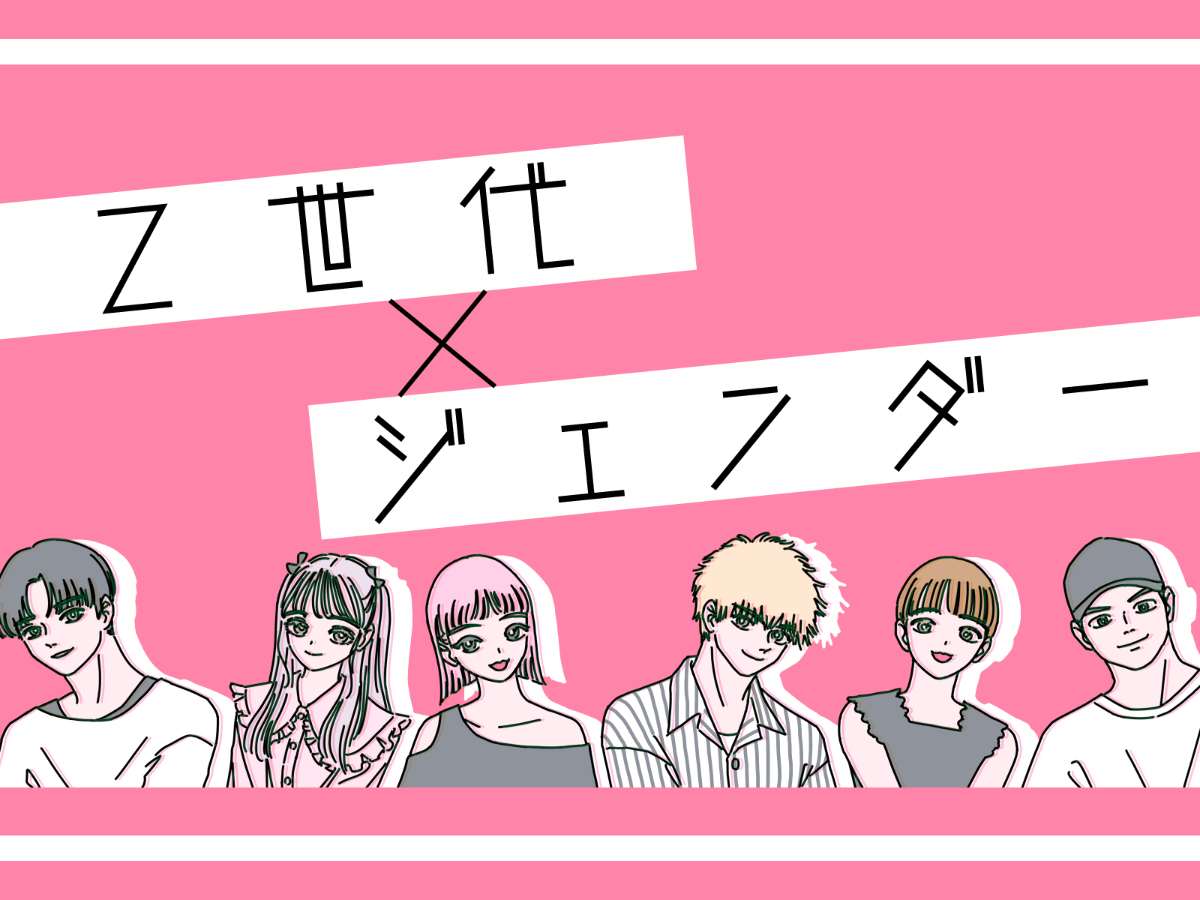Related Article
-

Japan’s New Giant Gundam Is It’s Biggest And Most Epic Yet
-

10 Situations From Anime That Would Never Happen In The Real World
-

Stunning Video Journey Captures All The Modern And Traditional Wonders Of Japan
-

New Japanese rice cooker cuts 20% of sugar from servings for healthy meals
-

Japanese gaming retailer releases bar tent and desk set for telework and online drinking
-

Toco The Cat Adorably Watches Over His Baby Brother During Naptime



Though this year has seen Japan move up from 121st place to ranking in at 120 (out of a total of 156), Japan’s Gender Gap Index is still not much of a number to boast about when compared to other countries.
Aiming to create a society where everyone feels included and is able to recognise and support one another, SHIBUYA109 lab recently held a ‘Gender Awareness Survey’ which was aimed at young people for ages up to 24. The survey was held online and answered by 222 people. The results of the survey revealed that 76.2% of survey participants recognise LGBTQ+ as a familiar and natural feature of life.
Generation Z is characterised as having a high level of interest in social issues. The belief behind this is that they were born and raised in an era in which there is an urgent need to solve social issues that relate to their identity.
The survey concludes that Generation Z – born between 1997 and 2015 – have a deep understanding of LGBTQ+ issues and rights, due to information that has been readily available throughout their lives via the web, news, SNS, conversations with friends and real-life experiences. In fact, it seems that Generation Z actively aims to deepen their own understanding and to create a supportive community, by collecting and sharing LGBTQ+ information with their own network.
For Generation Z, achieving gender equality might be the first step towards a society that recognises individuals freely for who they are, rather than tying them down to the stereotypes and prejudices that have existed and continue to exist even now.
One of the most interesting findings from the survey is that Generation Z appears to have more than double the understanding of LGBTQ+ issues and rights compared to that of their parents' generation and the entire society.
Survey Question: How much do you know about LGBTQ+?
9.5% of survey takers said that they can ‘explain and talk about LGBTQ+ in detail’, a further 47.3% said that they ‘have a varying degree of knowledge about LGBTQ+ rights, issues and characteristics’, 19.4% said they ‘only know the name of LGBTQ+, but don’t really know much about it’, and 23.9% said they don’t have any knowledge at all about LGBTQ+ or anything that relates to it. Altogether this means that the recognition rate of survey participants was at 76.2%.
Survey Question: Where do you hear about LGBTQ+ and what do you do with the information you have?
As expected in the age of electronic communication, the majority of survey participants receive their information about LGBTQ+ through SNS sites that focus on current topics. In fact, when asked, a large proportion say they source their information from Twitter. Following that, the next biggest resource of LGBTQ+ information is recorded as being the news on the TV.
(right figure)48.2% stated they get their information from SNS sites such as twitter. Close behind that, 45.5% said they hear about LGBTQ+ through television news. 40.1% read up on LGBTQ+ via internet articles, whilst 22.5% source information through LGBTQ+ groups and 21.6% from influencers who post about gender equality and LGBTQ+ on video distribution platforms such as TikTok or instagram.
The respondents were also asked what is that they do actively do anything about LGBTQ+ (left figure), from which 30.6% said they watch the news, 30.2% said they get their information from SNS, 25.2% said they chat with friends about it, 14.4% said they have understanding of LGBTQ+ already because a family member or friend identifies with it, and 13.5% said that they get to know what LGBTQ+ is through the internet.
The participants were then asked how they would feel if someone close to them told them that they identify as LGBTQ+, to which almost half of the participants responded that they ‘would want to understand’, that ‘it would not affect my opinion of them and I would continue to work/live with them as before’ and that they ‘would be glad they trust me enough to tell me’. On the other hand, negative opinions on the subject were small, and 0% of participants said that they would distance themselves from that person.
When asked to elaborate, one of the most common answers was along the lines of ‘I have LGBTQ+ friends in my circle, but that doesn’t mean that I would treat them any differently from the rest’.
When asked what some of the biggest issues are for LGBTQ+ communities, these were some of the most common answers: 47.3% said ‘a lack of knowledge/understanding from older generations’, whilst 45.% said ‘a lack of knowledge/understanding from the government and companies’, and 35.1% said ‘a lack of support for LGBTQ+’.
Some participants said that they are able to talk about LGBTQ+ with their families, whilst some explained ‘it is hard to talk with my parent’s generations and up because they hold onto strong stereotypes and have a low level of understanding when it comes to LGBTQ+’.
Opinions we’re also raised on the understanding within society itself, with some stating ‘the overall understanding within society itself is low when it comes to news relating to LGBTQ+, but it is good that issues involving LGBTQ+ are being conveyed by the news. For superiors within society, it can be difficult to change things, so it is perhaps better to spread understanding and individual thoughts through younger generations.
When asked whether there are words or phrases that are heard in daily life that make the participants feel uncomfortable, 57.7% answered yes.
60% explained that wording that groups people into genders such as phrases similar to or along the lines of “you’re a man, so don’t cry”, “you are so girly” or phrases where someone jumps to the conclusion of one’s sexual orientation such as “Do you have a boyfriend/girlfriend?” etc, make them feel uncomfortable. Instead of using phrases that group people together, Generation Z prefers to address the individual.
Survey Question: What do you want to become the norm for society in the future?
The survey concluded by asking the participants how they want future society to look when it comes to gender equality and those who identify as LGBTQ+. This was a multiple answer question to which the largest percentage (52.3%) voted that they would like a society that recognises individuals for who they are rather than by whether they are masculine or feminine. 45.9% said that they would like " a society that does not judge using prejudice, or stereotypes”.
Overall it seems that Generation Z believes that the future will encompass a society that recognises individuals for their personality and who they are, rather than by judging them on their looks or who they love. However, it seems like we still have some creases that we need to iron out in order to achieve this, and solving gender issues is likely the first step towards that goal.
Survey Overview
Type of survey: Web-based
Survey period: March 2021
Participants: Shibuya109 network members aged 15 to 24 years old
Total number of respondents: 222 people
For further information on the survey and the complete answers follow this link.